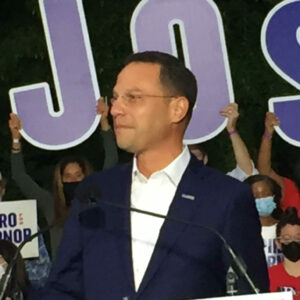A single paragraph of Gov. Josh Shapiro’s recently-released budget is already proving to be among the most controversial.
Tucked inside the nearly 1,000 pages of Shapiro’s executive budget proposal is an indication the state will likely embrace the controversial Regional Greenhouse Gas Initiative (RGGI) as part of the governor’s “environmental protection and management” goals.
RGGI is touted by green activists as “a cooperative, market-based effort” among a dozen East Coast states “to cap and reduce CO2 emissions from the power sector.” The program uses a system of “allowances” to clamp down on the amount of CO2 that power plants in member states can emit.
Advocates insist the program is a necessary part of the effort to bring down greenhouse gas emissions and head off catastrophic climate change. Critics say it is an expensive boondoggle that will drive up energy costs for working families and give too much power over the energy sector to state regulators.
Efforts to conscript Pennsylvania into the program have stalled. The Commonwealth Court last year blocked then-Gov. Tom Wolf’s attempt to implement RGGI in the state, leaving the program’s future here uncertain.
During his campaign for governor, Shapiro expressed skepticism about RGGI’s feasibility. “We need to take real action to address climate change, protect and create energy jobs and ensure Pennsylvania has reliable, affordable, and clean power for the long term,” he said in October 2021. “As governor, I will implement an energy strategy which passes that test, and it’s not clear to me that RGGI does.” Shapiro’s willingness to resist pressure from his party’s progressive base on RGGI sent a message to moderate voters that he was a more centrist Democrat, not part of his party’s fringe.
Now in office, it appears Shapiro may be pivoting to the left on RGGI, though notably, he did not directly mention the program in last week’s budget address before the Pennsylvania legislature.
His office told the DVJournal the governor has not flipped on the issue, and that Shapiro is merely exploring the program as one possible route for addressing environmental concerns. RGGI, a Shapiro official noted, remains tied up in the courts with its future uncertain.
Energy and policy experts, meanwhile, said Shapiro’s apparent intent to follow RGGI could bring pain for Pennsylvanians already reeling from high inflation and price hikes for basic necessities.
Jeff Nobers, the executive director of the industry advocacy group Pittsburgh Works Together, told DVJournal that joining RGGI would be a “disaster” for Pennsylvania.
“We are a major exporter of electricity, and we help keep the lights on in much of the eastern half of the country,” Nobers said. “Gov. Shapiro said during the campaign that RGGI was not the right policy for Pennsylvania, and we have no reason to believe he has changed his mind.”
Nathan Benefield, the senior vice president of the Commonwealth Foundation, said RGGI is “effectively a tax that will increase home electricity prices by 30 percent.”
“Rising energy prices are a top concern for Pennsylvania voters, who are struggling with the increased cost of living and looking for our elected leaders to work together with energy-producing companies to lower the cost of utility bills,” Benefield said. “Shapiro’s continued push for Wolf’s electric tax hike will only make matters worse.”
Shapiro’s office told DVJ the program’s provisions in the budget fall under the state’s Clean Air Fund, and that it would be inaccurate to call any money raised via that mechanism a tax.
The program’s possible adoption in Pennsylvania, meanwhile, has drawn cheers from progressives.
“We have a clear and present opportunity to supercharge the state’s clean energy economy by maximizing benefits from the Inflation Reduction Act and implementing the Regional Greenhouse Gas Initiative to build a cleaner, more equitable future for all Pennsylvanians,” Jackson Morris, a senior adviser to the Natural Resources Defense Council Action Fund told NPR.
The governor’s budget projects upwards of $663 million brought into state coffers via RGGI enforcement.
RGGI, meanwhile, is facing pushback in at least one other member state, with Republicans in Virginia earlier this year attempting to withdraw from the initiative via the state legislature.
That effort was ultimately defeated by Virginia Democrats, though the state’s Air Pollution Control Board has indicated it will seek a regulatory path to withdrawal.
Pennsylvania and Virginia are the only states involved with RGGI in which their respective legislatures are divided between Democrats and Republicans. Only one state, New Hampshire, has the GOP in control of both legislative chambers; all others are controlled by Democrats.
Please follow DVJournal on social media: Twitter@DVJournal or Facebook.com/DelawareValleyJournal

